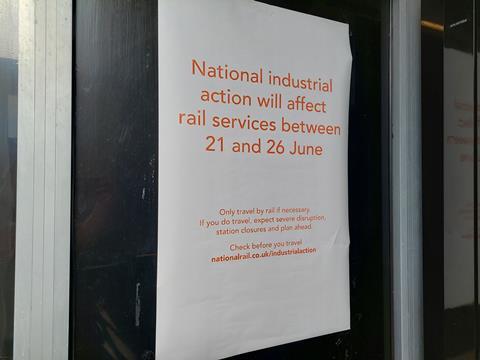
UK: The railway unions have welcomed the government’s announcement that it is to repeal the Strikes (Minimum Service Levels) Act 2023 as part of its upcoming Employment Rights Bill.
The previous government brought in the legislation in an effort to ensure that a minimum level of service is provided during strikes. The legislation was heavily criticised, with Labour’s Louise Haigh, who is now Transport Secretary, calling it ‘unworkable’ and free-market think tank the Institute of Economic Affairs describing it as ‘a box-ticking exercise’ and ‘likely to fall foul of a general election’.
On August 6 Business Secretary Jonathan Reynolds said ‘the Strikes Act has not worked – unbelievably the UK has lost more days due to strike action than France, costing the taxpayer billions of pounds, and these divisive laws haven’t resolved a single strike since they were introduced.’
Commenting on the government’s announcement, RMT General Secretary Mick Lynch said ‘we welcome this move as an opportunity to reset industrial relations in Britain and to move to a position of negotiating just settlements to disputes rather than having trade unions attacked and demonised. This success of ensuring the repeal of minimum service legislation is a direct result of the concerted efforts by the trade union movement’.
ASLEF said ‘we stated all along that minimum service levels would not work, would cause greater strife and worsen industrial relations. This was demonstrated earlier this year with an attempt to use them on the railways. We welcome the official announcement that this vindictive legislation will be repealed.’
TSSA General Secretary Maryam Eslamdoust said ‘our union had been clear from the start that not only would the legislation be unworkable but it was also an assault on the rights of working people. Clamping down on a fundamental freedom of working people was vindictive and actually unworkable’.



